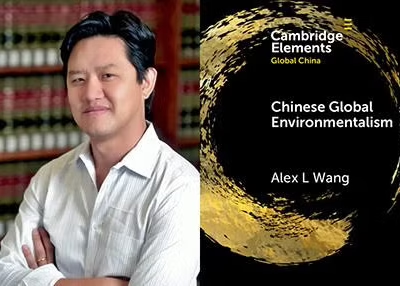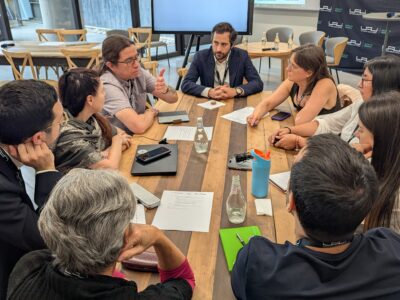The Simple Economics of Sustainability
I would like to offer a few thoughts about Dan’s recent post where he states;
“The economic formulas assume that people want their children and grandchildren to be as well off as they are, no better and no worse. But people actually want the future to be better than the present, and they’re willing to make sacrifices for this to happen. The economists need to wake up to that fact.”
I suggest that all readers of this blog read the Nobel Laureate Robert Solow’s 1991 talk about Sustainability. MIT’s Professor Solow is a well known political liberal and played a major role in creating the modern field of “growth theory” in academic economics.
I am optimist that our society is making progress. I would not be willing to pay to enter a time machine and be 46 years old in 1960 and I doubt that President Obama would be either. The “time machine” test is my thought experiment about whether we are making progress. Would anyone in China or Thailand today prefer to be their current age and the year be 1960 or 1860?
The simple economics of sustainability focuses on the substitutability of capital stocks. There are several capital stocks including; our stock of human capital, our stock of physical capital, and our stock of natural capital (such as ambient GHG concentrations). Over time our knowledge and our physical capital increases but we are depleting the stock of natural capital. So, when you add these “apples and oranges” is our total capital stock increasing over time? If ideas and human capital economize on our need for natural resources, then my answer is “yes”. Ideas are public good. Think of improved solar panels and their ability to create power without GHG emissions. The “increasing returns to scale” of good ideas is the underlying source of economists’ optimism about our collective ability to make progress so that future generations have a better quality of life than ours’.
Reader Comments
6 Replies to “The Simple Economics of Sustainability”
Comments are closed.







Hi, Matt. I think your post addresses a somewhat different issue than mine. I was really addressing an observation I’ve heard from a number of economists. They contend that sacrificing to benefit future generations is irrational because future generations will be better off than we are anyway — so expenditures we make for their benefit are transferring wealth from the poor (us) to the rich (our descendants).The assumption is that we prefer income equality across generations to a rising standard of living.
As I understand it, a preference for smoothing out differences in income is also built into the Ramsey growth formula as the η parameter. If that’s an accurate description of utility functions for intergenerational wealth, parents and grandparents who see that their children and grandchildren are on an upward trajectory shouldn’t be making sacrifices to help them do even better. Instead, they should be focusing their attention on themselves. But that’s not what we see. It seems to me that people have a preference for higher wealth in later generations, rather than for equalizing wealth across time.
Hi, Matt. I think your post addresses a somewhat different issue than mine. I was really addressing an observation I’ve heard from a number of economists. They contend that sacrificing to benefit future generations is irrational because future generations will be better off than we are anyway — so expenditures we make for their benefit are transferring wealth from the poor (us) to the rich (our descendants).The assumption is that we prefer income equality across generations to a rising standard of living.
As I understand it, a preference for smoothing out differences in income is also built into the Ramsey growth formula as the η parameter. If that’s an accurate description of utility functions for intergenerational wealth, parents and grandparents who see that their children and grandchildren are on an upward trajectory shouldn’t be making sacrifices to help them do even better. Instead, they should be focusing their attention on themselves. But that’s not what we see. It seems to me that people have a preference for higher wealth in later generations, rather than for equalizing wealth across time.
“So, when you add these “apples and oranges” is our total capital stock increasing over time? If ideas and human capital economize on our need for natural resources, then my answer is “yes”. “
I wasn’t aware that human minds could create more land while keeping forests intact out of thin air. I wasn’t aware that the human mind at this time was pulling CO2 out of the air before the climate was disrupted. I was unaware that human minds had decreased the amount of fertilizer needed to grow crops, as well as creating more water from…from…well, clearly I have more reading to do, obviously.
“So, when you add these “apples and oranges” is our total capital stock increasing over time? If ideas and human capital economize on our need for natural resources, then my answer is “yes”. “
I wasn’t aware that human minds could create more land while keeping forests intact out of thin air. I wasn’t aware that the human mind at this time was pulling CO2 out of the air before the climate was disrupted. I was unaware that human minds had decreased the amount of fertilizer needed to grow crops, as well as creating more water from…from…well, clearly I have more reading to do, obviously.